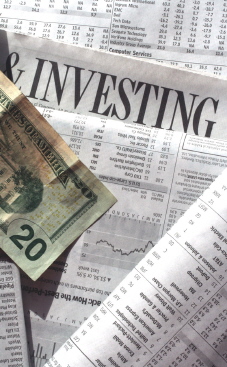New financial arrangements for renewable energy
| Function / Domain: | Energy |
| Illustration of: | New financial arrangements |
These are examples of new, creative financial arrangements that help in efforts to scale up and anchor system innovations in the field of energy. The arrangements imply a new approach to one or more of the following aspects of financing; time, actors (new parties or old parties with new roles) and methods of settlement.
Cooperative Retenergie in Italy and Noordenwind in the Netherlands
The diffusion of small scale renewable energy systems is often hindered by the lack of financial means. Moreover, the traditional energy market makes the final consumer largely dependent on the choices of the energy provider in terms of energy sources.
Retenergie in Italy uses an alternative business model, which involves shortening of the energy supply chain and creating a direct link between producer and consumer. The model originated in 2008 from the experience of a group of citizens launching a web call for funding to build a 20Kw photovoltaic plant on the roof of a cooperative. The success of this initiative, which found financial support from different parts of Italy, led to the development of Retenergie. The cooperative designs and realizes renewable energy plants (photovoltaic, hydroelectric, wind and biomass plants), financed by the shareholders of the cooperative. The shareholders, for their part, are supplied with the produced energy. To that end, the cooperative has an agreement with an energy supplier to deliver energy to its members. Members are also offered services on energy issues.
Broader impact By changing the distribution model to a cooperative that builds renewable energy plants not only the consumer can be in control of the energy sources, and renewable energy sources are facilitated. Yet, also the transition is promoted, of the current model of centralized energy distribution to a distributed energy system.
Noordenwind in the Netherlands is a similar initative. Noordenwind is a Dutch association that promotes collective ownership of wind turbines in the province of Noord-Nederland. It installs and operates wind turbines and promotes renewable energy. The association has members and donors. The members lend money to build wind turbines and in exchange they receive a certificate for their investment (a subordinated loan). The association uses the income from the energy generated to pay the interest and principal on the certificates.
The certificates are issued at values of between € 50 and € 5,000 and are redeemed within ten years. Because the participants are members of the association they have control, for example over the interest rate paid.
New arrangement for energy-efficient products
For many consumers the purchase price of a product is more important than the annual running costs. This is an obstacle when it comes to buying many durable goods, such as energy-efficient fridges and long-life light bulbs. This has led numerous Dutch companies to come up with new arrangements for financing a purchase. For example, if you buy long-life light bulbs from your energy company, the company could charge you for them later in the annual electricity bill, which will be lower because of the energy you have saved. In this way, the customer scarcely notices the purchase price.
Similar arrangement A number of Dutch building companies have similar arrangements. For example, they make improvements to schools to increase their energy efficiency and bear the initial investment costs themselves. The schools pay from the savings on the energy costs, which can quickly rise to several thousand euros a month.
Boer EN Buur for solar panels
Boer EN Buur is an initiative of the Dutch foundation ‘Inclusive Science', designed to promote collaboration and joint investment by farmers and citizens in specific projects. One of those projects involves solar panels. Under the scheme, individuals can invest 250 euro towards the costs of installing solar panels on a farm. In return, for six years they receive vouchers worth 50 euro that they can use to buy products and services from a farm of their choice.
German Einspeisegezetz
In Germany, solar energy received a powerful boost from the Einspeisegezetz (2000), a law designed to break the deadlock facing renewable energy. Renewable energy, whether it is from the sun, wind or biomass, is too expensive to compete with energy from fossil fuels. The law provides for a (temporary) premium on the price paid for renewable energy that is high enough to make it worthwhile to invest in it. To prevent the industry from becoming lazy, the energy companies reduce the subsidy by 5% each year.
Energy companies pay The Einspeise allowance is not paid by the government but by the energy companies. A government therefore has no reason to scrap the scheme in the event of it facing financial problems. The energy companies include the allowance in their energy price, which costs the average German household 35 euro a year.
Success The law has been a success: the number of solar panels installed has risen exponentially and the price of the panels has fallen. The total installed capacity rose from 100 megawatt in 2000 to more than 3,000 megawatt in 2006, which is the equivalent of the capacity of six coal-fired powered stations. The German law now serves as a model for similar schemes in various other European countries.
Sources
Retenergie: www.retenergie.it (in Italian)
Noordenwind: http://www.noordenwind.org/
